Hi Everyone,
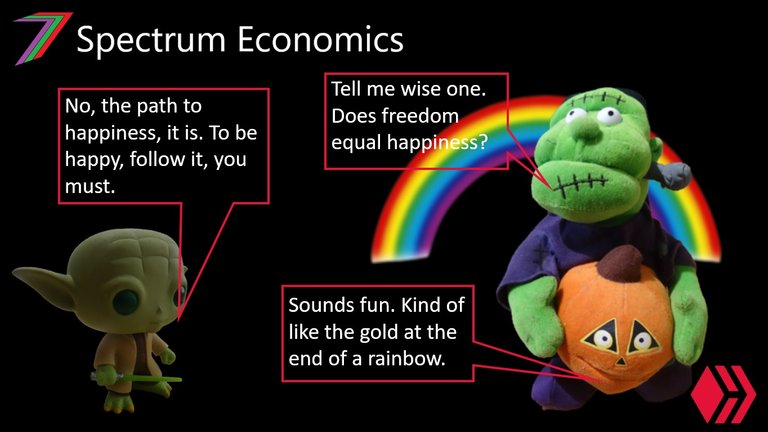
Different people desire different things in life. However, these desires generally serve the purpose of achieving happiness (i.e. high level of subjective well-being). Happiness is an emotional state characterized by feelings of joy, satisfaction, contentment, and fulfilment. While happiness has many different definitions, it is often described as involving positive emotions and life satisfaction (VeryWellMind). Freedom involves being able to make choices. Performing an action of your own choosing. Freedom will always be relative to the environment/situation, which you inhabit. (Urban Dictionary).
Freedom does not directly provide us with happiness. However, freedom provides us with opportunities to attain happiness by enabling us to make decisions that will contribute to achieving it. Therefore, freedom needs to be accompanied with enlightened decision-making. To make enlightened decisions, people need to understand themselves, their circumstances, those around them, and their environment. This is possible if we are committed to acquiring knowledge and the pursuit of life-long learning.
Using Freedom to Pursue Happiness
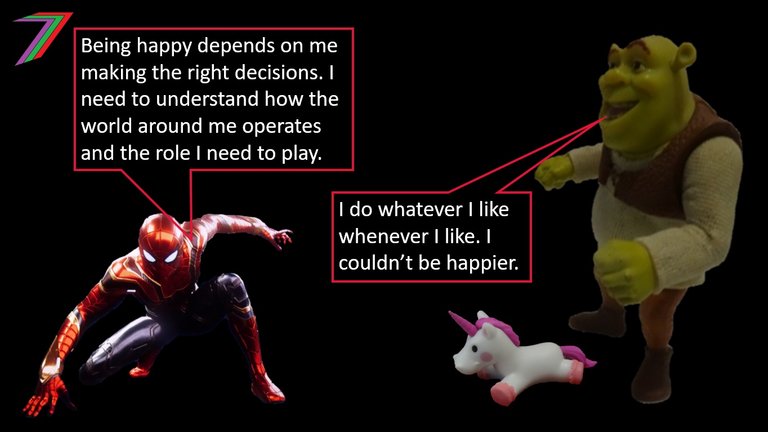
Freedom puts the responsibility of achieving happiness on ourselves. Therefore, we need to devise strategies that best utilises our freedom to make decisions that improve our happiness. In this post, I will make use of a simple decision-making model to explain how we can make decisions to improve our happiness. See Figure 1 below,
Figure 1: Decision-making Model to Achieve Happiness
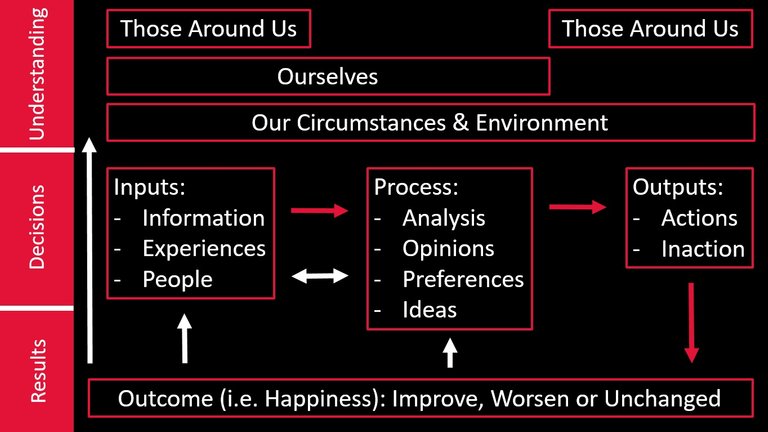
Note: red arrows follow the process and the white arrows are feedback
Figure 1 breaks down the strategy into three sections. The top section shows four important areas we need to understand and how these areas affect our decision-making process. The middle section contains the decision-making process, which consists of inputs (information, experiences, and people), process (ideas, opinions, preferences, and analysis), and outputs (actions). The bottom section contains the outcome/s, which relates to happiness. This tells us whether we are improving or worsening our level of happiness. This provides us with essential feedback to our decision-making process. Do we need to revise our decision-making process? Do we need to understand ourselves, people around us, our circumstances, and environment better?
Understanding
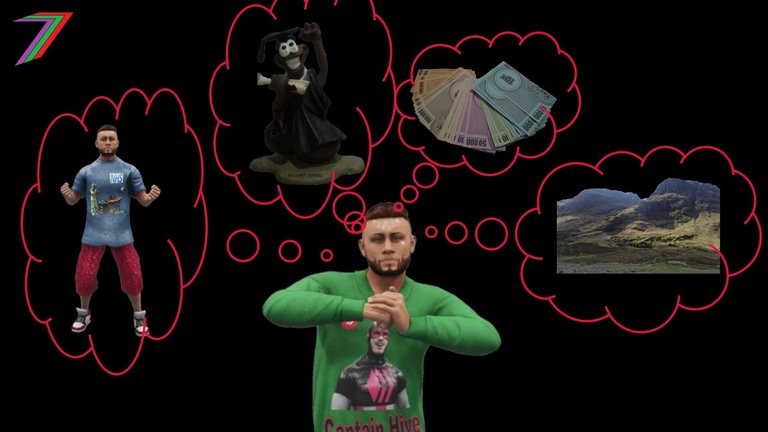
If we are going to use freedom as a path to happiness we need to understand how and what influences our decision-making process. If we are unaware of how our decision-making process is being influenced, we are likely to be incorrectly assessing what we want as well as how we can obtain it. We could be pursuing the wrong things in the wrong way.
To understand how we are being influenced, we need to understand what might be influencing us. We may have pursued a particular path because it saves money. We may have been influenced by a close relative. We may have been influenced by an unrealistic childhood dream. We may have been influenced by peer pressure. We need to understand how we can manage these influences so that they do not cloud our judgement. If possible, we can even use them to help achieve our goal of happiness.
Ourselves
Understanding ourselves is a complex and often difficult process. Our ideas, opinions, and preferences are constantly evolving and changing as we pass through life. We are shaped by our experiences, the information we are exposed to, and the people we encounter. The person we are today is different from the person we were several years ago and different from the person we will be in several years time. Acknowledging our own evolution is a good place to begin understanding ourselves.
We can reflect on our actions and opinions. We can analysis how we reached a particular point of view and why we choose a particular action. We can reflect on why we think differently or the same as we did previously. We can decide if we would pursue the same course as we did then or if we would have done something different now.
People Around Us
The people around us play a huge role in influencing our perceptions and how we conduct ourselves. It is important to understand how people influence us as well as the possible bias they may introduce into our lives. Their bias could easily become our bias or we could overcompensate and become biased against them and their opinions.
The people around us are affected by our ideas, opinions, and actions. Different people are affected in different ways. One person may react positively to a particular action and another person may act negatively to the same action. We need to understand how different people are going to react so we can assess the risk involved in taking actions.
Our Environment
Our environment relates to the broader world around us. This includes our home environment, work environment, social environment, natural environment, political environment, etc. Our environment is critical to us because it affects us all the time. We have minimal control over it. We may be able to change some aspects of it by relocating or changing workplace. However, these changes might be time consuming and/or expensive and these changes may not create an overall improvement for ourselves. Regardless of what we do, we will always be part of an environment.
To cope with our environment, we need to adapt to it. To adapt to it we need to understand it. We need to understand the various elements of it and how they affect us. We need to distinguish between the positive and the negative; amplifying the positive and reducing the negative. We need to consider how our actions could be affected by our environment and how they may need to change to respond to changes to our environment.
Our Circumstances
Our circumstances could relate to any number of things. They could be physical health, financial wealth, employment, personal relationships, etc. I regard circumstances different to our environment as they pertain directly us rather than people in general. Our circumstances are likely to change frequently and tend to be less constant than our environment. Our circumstances could change because of our actions or inactions or they could change for reasons unrelated to us (e.g. environment).
Our circumstances influence and affect every aspect of decision-making. Therefore, it is essential that we understand them as well as how they might change if we choose a particular course of action. For example, going on holiday might make us happy but it may significantly impact us financially. This financial impact will affect other decisions we make in the future.
Decisions
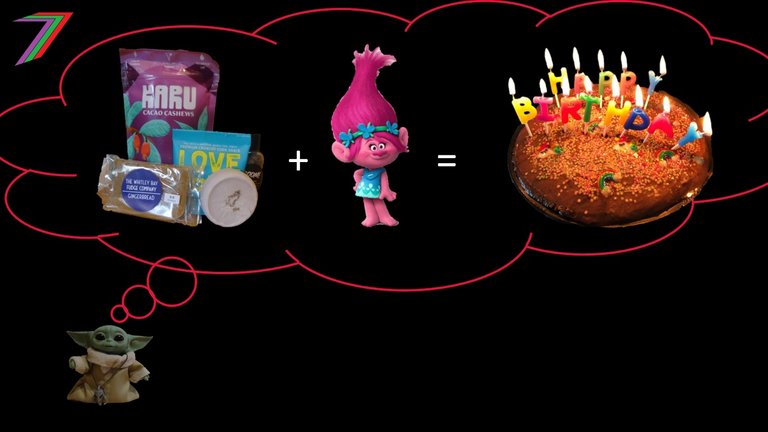
There are many ways to make decisions. One of the simplest ways to explain how decisions are made is through a basic decision-making model (see Figure 1).
We start with the inputs. We need to search for some of the inputs and others just naturally form part of lives. We search for information to help provide us with awareness and knowledge. Many of our experiences occur naturally and, for better or worse, we cannot fully escape their impact. People can influence us through their own experiences, opinions, and knowledge.
Once we have absorbed some of the inputs, we start processing them. Ideally, we should analyse all the relevant inputs to understand how they affect us and how we might affect them based on our possible actions. We form, adjust and change opinions based on the inputs and influences. We discover some of our preferences based on our experiences and input from people. We generate ideas about what we want and how we can get it. Our process should exist to move us towards actions that will enable us to achieve our goals (i.e. happiness).
The next step involves taking action. The process should have determined what we want as well as how we can get it. The action involves generating outputs that enable us to achieve our goals. These actions need to be compatible with our environment and circumstances. They also need to consider the response to our actions by other people, which could be positive or negative.
Results
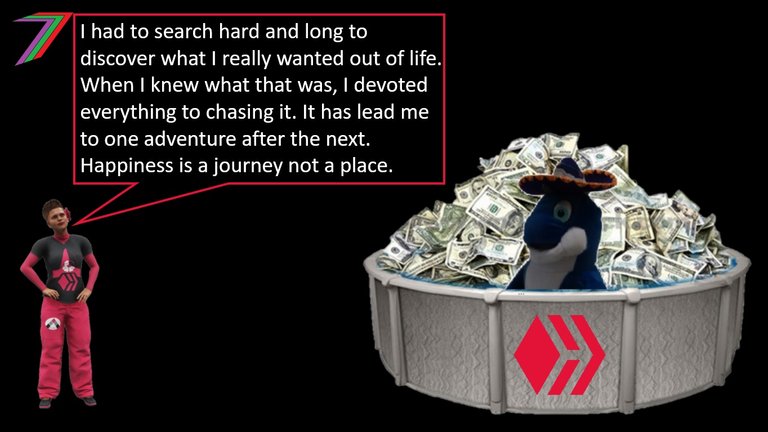
Do our actions achieve our goals? Have they contributed to improving our happiness? If so, to what extent? Sometimes our actions reap immediate rewards and sometimes it takes a long time. We should be aware of the possible duration of the effect of our actions. This will determine when we should use feedback to revisit our process as well as our understanding of influencing factors.
Regardless of how successful we have been at achieving our goals, we will still need to revisit our process as well as review our understanding of our influences as they change. What provides us with success now might not continue to reap the same level of rewards in the future. Using freedom to achieve happiness is a perpetually ongoing process
Happiness without Freedom
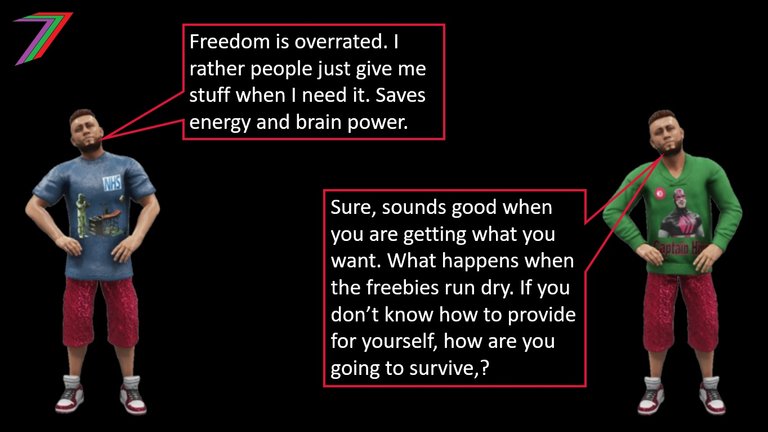
Freedom is not always a prerequisite for happiness. We could be happy if our desires are met purely by the actions of other people. However, the actions of other people, which are subject to change, are beyond our control. When circumstances change, our desires may no longer be met. In the absence of freedom, we are unable to meet our desires. We could attempt to obtain freedom (or at least some freedom), or wait for circumstances to change so that our desires are once again met. Our attempts to obtain freedom could fail. Even if we obtained more freedom, we may not use it in a way that will help us achieve happiness. Freedom provides us with opportunities to achieve happiness. Lack of freedom leaves our happiness down to chance. How lucky do you feel? That question does need to have much weight if we control our own fate. Freedom gives us that control.
More posts

If you want to read any of my other posts, you can click on the links below. These links will lead you to posts containing my collection of works. These 'Collection of Works' posts have been updated to contain links to the Hive versions of my posts.
Hive: Future of Social Media
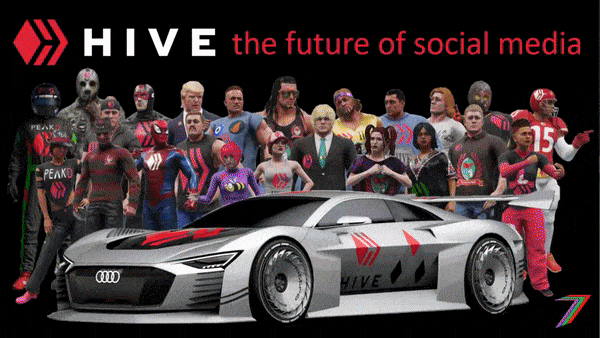
Spectrumecons on the Hive blockchain
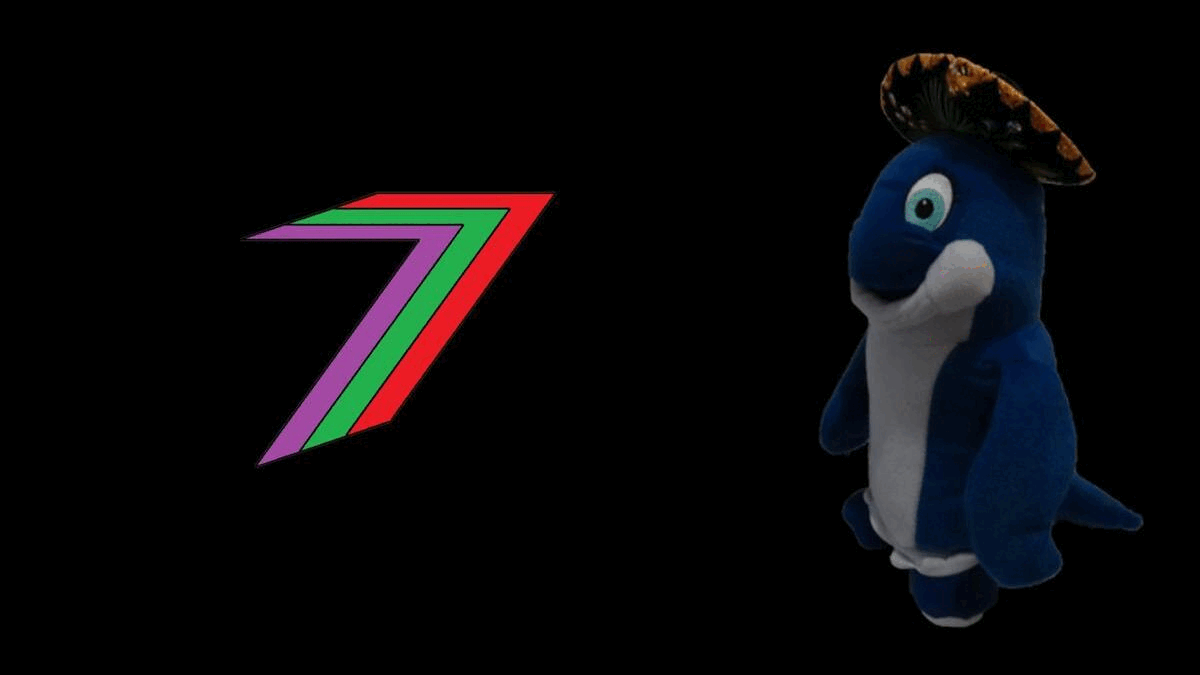




In so many situations I have seen people sacrifice their freedom for happiness, can I say this is what you're vividly trying to say in this place?
However to me, I think that the expression of freedom can sometimes give someone the ultimate feeling that happiness is inevitable. There are so many real life situations where people would prefer to be happy rather than be free. I have seen in movie situations where people would prefer safety or the illusion of safety rather than having to face or experience the likelihood of danger.
This is because I think that some people feel that their freedom is in their happiness. However sometimes I feel that freedom is the ability to express oneself and this expressions might not guarantee happiness.
In so many countries for example, people do not have the freedom of choosing to take the COVID vaccine or not. While the government are saying that this compulsion is for the safety of people, I believe not everyone feels happy from being forced to experience the safety that the government is ensuring.
It's quite a dicey and twirling discussion and it was great to read about how the people around us and our previous experiences can influence our decisions.
@tipu curate
Posted Using LeoFinance Beta
Upvoted 👌 (Mana: 45/55) Liquid rewards.
Why trade freedom for happiness when it is possible to have both? The main difference is with freedom we need to put effort into finding happiness. However, this happiness is more meaningful and we have more control over it. Happiness without freedom is unlikely to last. When we lose it, it is difficult to get it back.
When people choose safety over freedom, it is out of fear. Ironically, losing freedom usually results in losing safety as well. The more dependent we become on something or to someone, the weaker we become.
I think some people prefer living in delusional happiness, especially if they find it as a solace to escaping their darkness.
I believe this is exactly what is happening all over the world with covid-19 and many governments. They are not covid-19 cases in Nigeria but still people subject themselves to all kind of things in order to acquire that safety. Sometimes even fear itself is a state of being unsafe.
Thanks a lot for the clarifying response, reading this was enlightening.
Posted using LeoFinance Mobile
This post has been manually curated by @steemflow from Indiaunited community. Join us on our Discord Server.
Do you know that you can earn a passive income by delegating to @indiaunited. We share 100 % of the curation rewards with the delegators.
Here are some handy links for delegations: 100HP, 250HP, 500HP, 1000HP.
Read our latest announcement post to get more information.
Please contribute to the community by upvoting this comment and posts made by @indiaunited.